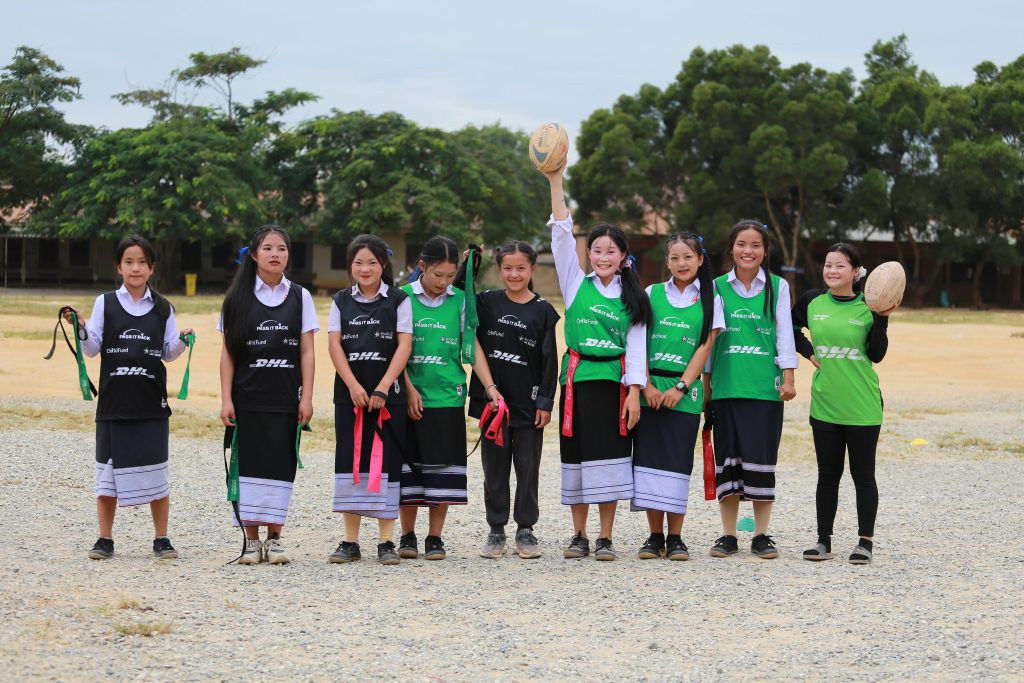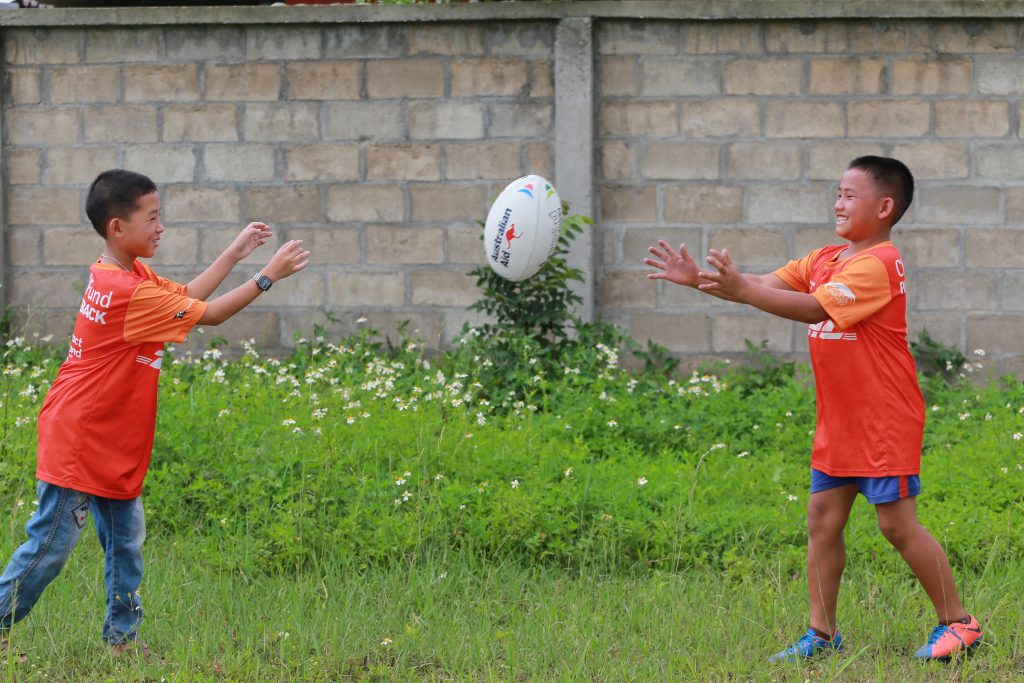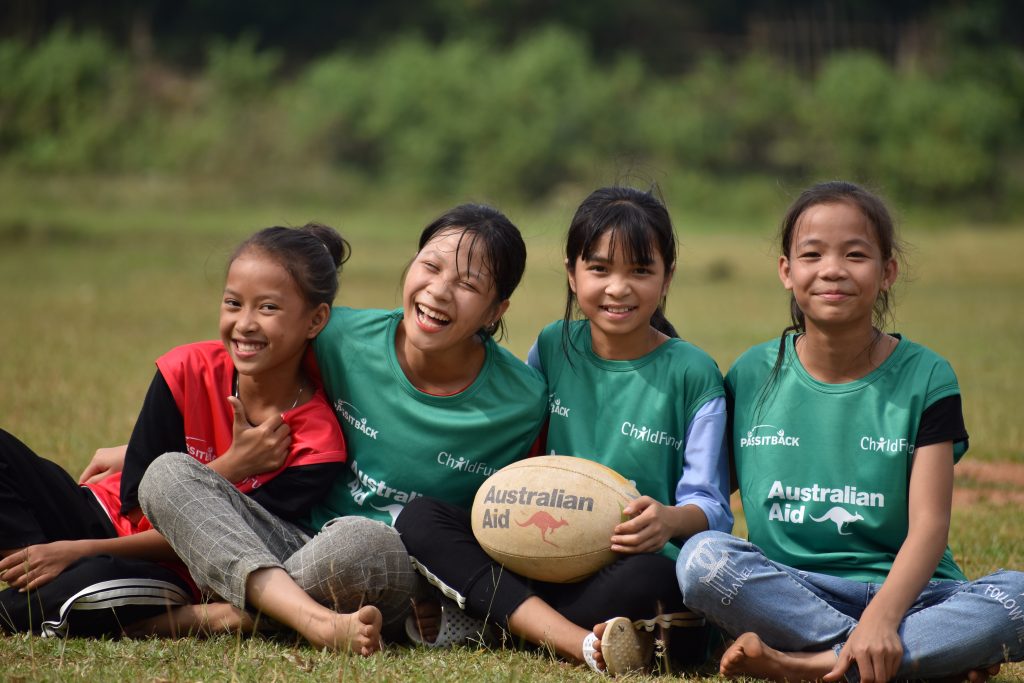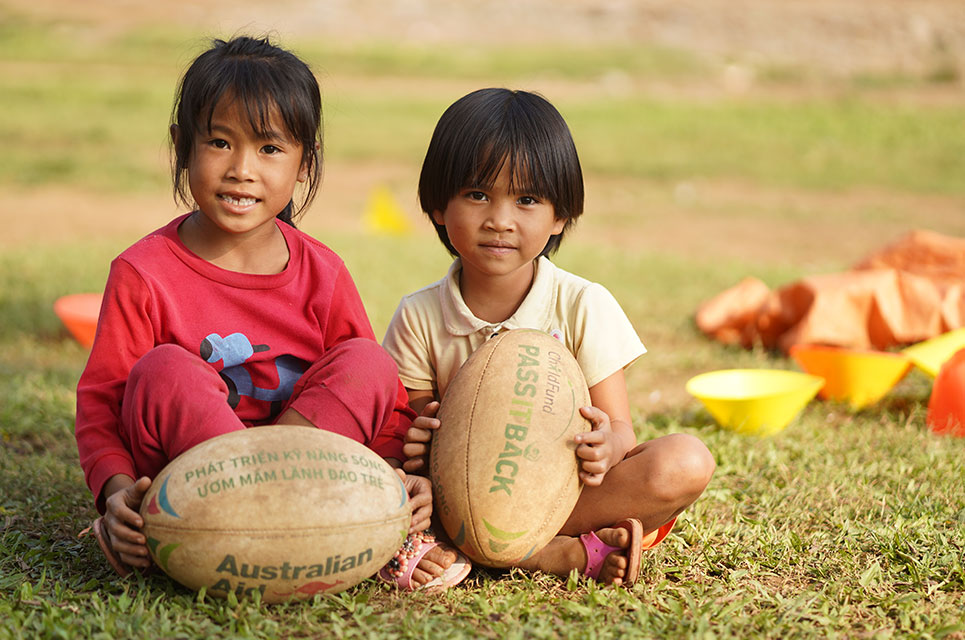Your basket is currently empty.
What is Reconnect?
The COVID-19 pandemic has created unprecedented disruption to the world and heavily impacted the lives of many people worldwide. Children and young people have been particularly impacted and are facing a number of challenges: feeling isolated, losing access to their peer support networks, holding concerns about their own and their family’s health and wellbeing, and experiencing violence.
During this period, ChildFund Sport for Development developed Reconnect, a COVID-19 pivot curriculum which sought to provide opportunities for children to reconnect through sport and to equip them with skills to cope with change in a safe environment.
Reconnect was delivered in two stages; Reconnect Rapid and Reconnect Teams. The former focuses on immediate response to provide children and young people with opportunities to drop-in access sport and learning activities in safe and structured settings that are highly adaptive to meet rapidly changing public health measures, while the latter is designed to maintain strong hygiene practices, but to focus learning on setting goals in times of uncertainty as part of a team.
Between May and December 2020, 13,598 sessions and 8 competitions were delivered to 8,998 players by 160 Coaches across Laos and Vietnam; more than 50% of Reconnect participants are girls and young women.
Through each stage of Reconnect, Coaches supported players and their communities by providing opportunities for physical activity and social interaction (while adhering to relevant government regulations), along with life skill learning opportunities.

Over a half of Reconnect participants are girls and young women.
Positive impact on children and young people during COVID
Reconnect Rapid
Reconnect Rapid provides opportunities for children to participate in tag rugby and life skills sessions, reconnect with their peers in a safe and positive environment, with the aim of leaving the session having exercised, had fun, learned some important skills related to keeping themselves and other people safe during COVID-19. It also provides an opportunity for players to share some of their worries and stresses with Coaches and peers.
By the end of the Reconnect Rapid stage, data collected showed that many players were attending sessions regularly and valued the opportunity for physical and social activity which Coaches were providing. Player confidence regarding their own ability to look after themselves (such as via correct hand-washing and physical distancing) improved over the 2 cycles of Reconnect Rapid delivered.
“I am so pleased to meet with my friends again, because we couldn’t meet each other during the lockdown. I missed them and we could not talk to each other at all, despite being in the same village. Attending this activity helps us to reconnect with each other again.” Said Khamdee, a player from Laos.

Players in Laos at a Reconnect training session.
Reconnect Teams
Reconnect Teams provided a more structured curriculum and supports players to develop skills around social and emotional learning, as well as work with their Coach and peers over 10 sessions to set a personal goal to achieve in the coming year. By setting goals, creating plans and supporting one another to achieve them, players can find ways to overcome feelings of helplessness or frustration brought on by the emotional and social impacts of COVID-19.
After 10 sessions:
- 69% of players stated that they feel confident they are capable of learning many things (+25%);
- 64% of players stated they don’t feel helpless when faced with difficulties or challenges in life (+15%);
- 80% of players stated they would help someone in need, even if they don’t like that person (+15%).
A majority of players successfully set a personal goal and stated that, after 10 sessions, they feel more confident to achieve the goal than they did at the beginning when they first selected their goal. Some common examples of goals include achieving a higher grade at school, purchasing a bicycle, buying gift for someone and winning matches at the next tag-rugby competition.
“I’m really impressed with one of my player’s goal: to pass the university entrance examination once she finishes high school. Thanks to the skills she has learned, she reached out to her teacher and asked her for extra support after class.” Said Hien, female Coach from Vietnam.

Players in Vietnam at a Reconnect training session.
Every session, Coaches monitored player behaviour and assessed whether there was evidence of negative and/or positive behaviours among the team. Negative behaviours include: teasing or yelling at other players, interrupting or talking over other players, and pushing in line/in front of other players. Positive behaviours include: encouraging teammates during rugby activities and encouraging teammates during life skills discussions. The evidence, based on Coach observations across hundreds of sessions, shows a reduction in negative behaviours among players and an increase in positive, supportive behaviours from session 1 to session 10.
Sport as a critical tool to support community through challenges
Research shows that high quality Sport for Development programs can effectively promote physical and mental health. In a time of crisis, this becomes even more important. Access to safe Sport for Development activities enables children to continue to take part in healthy, physical activities, stay connected to vital support networks to seek support and obtain important information, and to develop important social and emotional skills.
————————
Photos: ChildFund, Lao Rugby Federation

